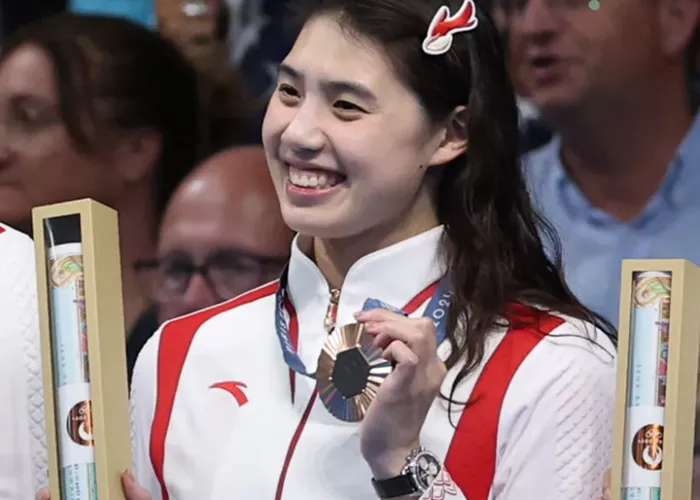Hong Kong foil fencer Edgar Cheung Ka-long captured gold on July 30, drawing attention to the Van Cleef & Arpels Alhambra bracelet he wore. Similarly, Chinese badminton player Chen Yufei was seen sporting an Alhambra necklace earlier. This has sparked speculation that both athletes are leveraging the luck-associated four-leaf clover pendant from the French jeweler. Notably, neither Cheung nor Chen are brand ambassadors for Van Cleef & Arpels, unlike Eileen Gu, who endorses Tiffany & Co.
However, not all the focus is on international luxury brands, nor is the reaction entirely positive. On Weibo, a wave of conspiracy theories has emerged suggesting that women’s table tennis gold medalist Chen Meng’s victory over compatriot Sun Yingsha is linked to the Feng Shui properties of the round jade pendant she wears. The topic, “Chen Meng’s Jade Necklace Symbolizes Completeness in Paris” , has risen to number 2 on the Hot Search list, with 88.56 million views. In traditional Chinese symbolism, roundness often signifies completeness.
From Wang Chuqin’s Tiffany necklaces at the airport to Ma Long’s Omega Speedmaster Chronoscope Paris 2024 edition at the opening ceremony, there is considerable interest in the jewelry and watches worn during the Olympics. It is worth noting that Ma Long is a brand ambassador for Omega, which frequently utilizes its Olympic appearances for promotion. With the global spotlight on the Games, brands have a prime opportunity to enhance their visibility among consumers. The jewelry industry, in particular, is capitalizing on the concept of “xuanxue”—the belief in luck and symbolism associated with their pieces.

